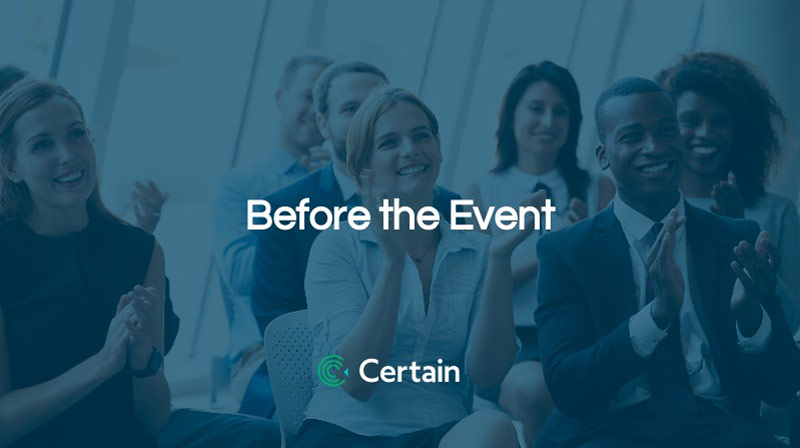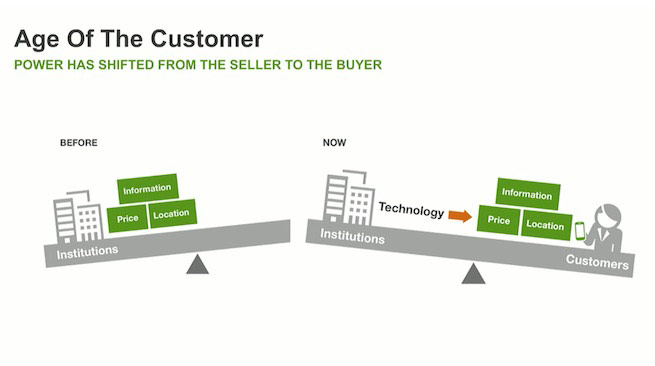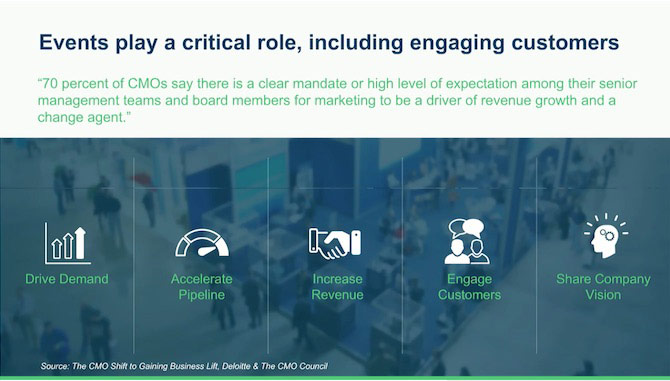Part 1: Personalization
“Events are a forum for driving business results all the way from the top of the funnel down through to customer success and driving additional revenue through customer,” Forrester Senior Analyst, B2B Marketing, Allison Snow.
Events can be a goldmine for the sales funnel and lead gen; but only if the means can justify the end, or if the return on investment (ROI) justifies spend. Certain recently revealed that 70 percent of U.S.-based senior marketers plan to increase their marketing spend on events in 2017.
This increasing spend is adding a lot of pressure; In fact, 70 percent of CMOs recognize that there’s an expectation that they will be a driver of revenue growth and a change agent for the business. With so much budget going into events and increasing pressure to show tangible business results, a closer look at each phase of an event – before, during, and after -– is needed to really understand what can be done to make sure that marketers are driving the greatest results possible from every element of an event strategy.
To understand this more, Certain recently hosted a webinar with Allison Snow of Forrester to lay out the tactics that marketers can take before, during, and after events to maximize ROI by gathering more relevant data on customers and prospects.
Before diving into each area in depth, it might be helpful to set the stage with some points about the new age of customer interaction that marketers are facing. These are all crucial interaction areas that marketers need to take into account for customer success, which are all dependent on each other, and therefore equally important. To really prove ROI for events, marketers need to be concerned with:
- Driving revenue through great customer experience: strive for a genuine connection
- Differentiating with digital: target on relevant channels
- Building a customer insights-driven organization: take what you learn and apply it immediately
- Excelling at customer-obsessed marketing: develop deep relationships
- Maximizing the business value of technology: reap ALL the benefits of the tech you’re investing in
In this first of three blog posts, let’s look at the steps that can be taken before an event even occurs to maximize ROI, while keeping the five customer interaction points in mind.
Before the Event, Personalization is Key
At the very beginning, before an event even begins, taking steps to personalize marketing, creating segments and reaching people with a very specific message, can enable higher attendance. This is a tactic that CA Technologies took to heart through its annual conference, CA World, where it was able to drive 42 percent higher attendance from the previous year, just by tailoring its marketing to the different segments it was trying to attract.
Personalization is a tactic that can be used throughout the event cycle to make critical success factors such as attendee engagement peak and drive more relevant lead information for sales. But, success like this starts at the beginning. Before an event gets under way, the data gathering potential is limitless. Here’s a few ways to begin with personalization:
Treat events like they’re part of the bigger marketing effort.
- It’s understandable, with all the logistics and planning, that many marketers today treat events like one-off occurrences. They’re not thinking about other channels to support or engage and it implies a bit of “box checking”.
- Events can be planned around where pipeline opportunities exist, and then metrics around the performance of those events and how much they’re driving in terms of new opportunities, pipeline acceleration, and closing deals. Having this understanding and agreement about the event strategy with other business groups, such as sales, that touch events is important so that rather than just checking the box, the events are actually driving results that are material to the business.
Engage with your prospects and customers across relevant channels.
- By creating targeted, relevant posts for all your channels with data captured at prior interactions, marketers can cover all bases and reach people on the channels they most frequent.
- Use all possible digital channels to drive registration: this includes direct mail; multiple company and key stakeholder social channels; website lead-gen pages; and targeted campaigns to attendees and prospects that have indicated an event is important to them based on past data captured from other events and interactions.
Data capture to create targeted registration.
- A lot of our customers are seeing success through either LinkedIn and going after accounts specifically, or through Google or other paid advertising outlets. Then, in addition, very early on in a marketing strategy, instead of just having registration forms with the standard questions, marketers can start asking more particular questions to get data that they can use to create more personalized marketing.
- Some of the questions that can be asked in advance of the event are, “Why are you attending? What are your top products of interest? What are your most anticipated sessions or speakers?” And then, if that data is captured, an event automation platform can be used to send that data into marketing automation, that can be used as an intent signal that either goes into a scoring mechanism or it can just be used to create a segment. That’s where the ROI kicks in and marketers are not just gathering data, but actually making a business case for the data to make lead really detailed for the sales follow up.
The importance of proper planning before an event is key to a successful event that drives ROI, but, it’s just one piece of the puzzle. Part 2 and 3 of this blog will be focused on which tactics can be taken during and after an event as well to offer a strategic focus and clear ROI for the business.


